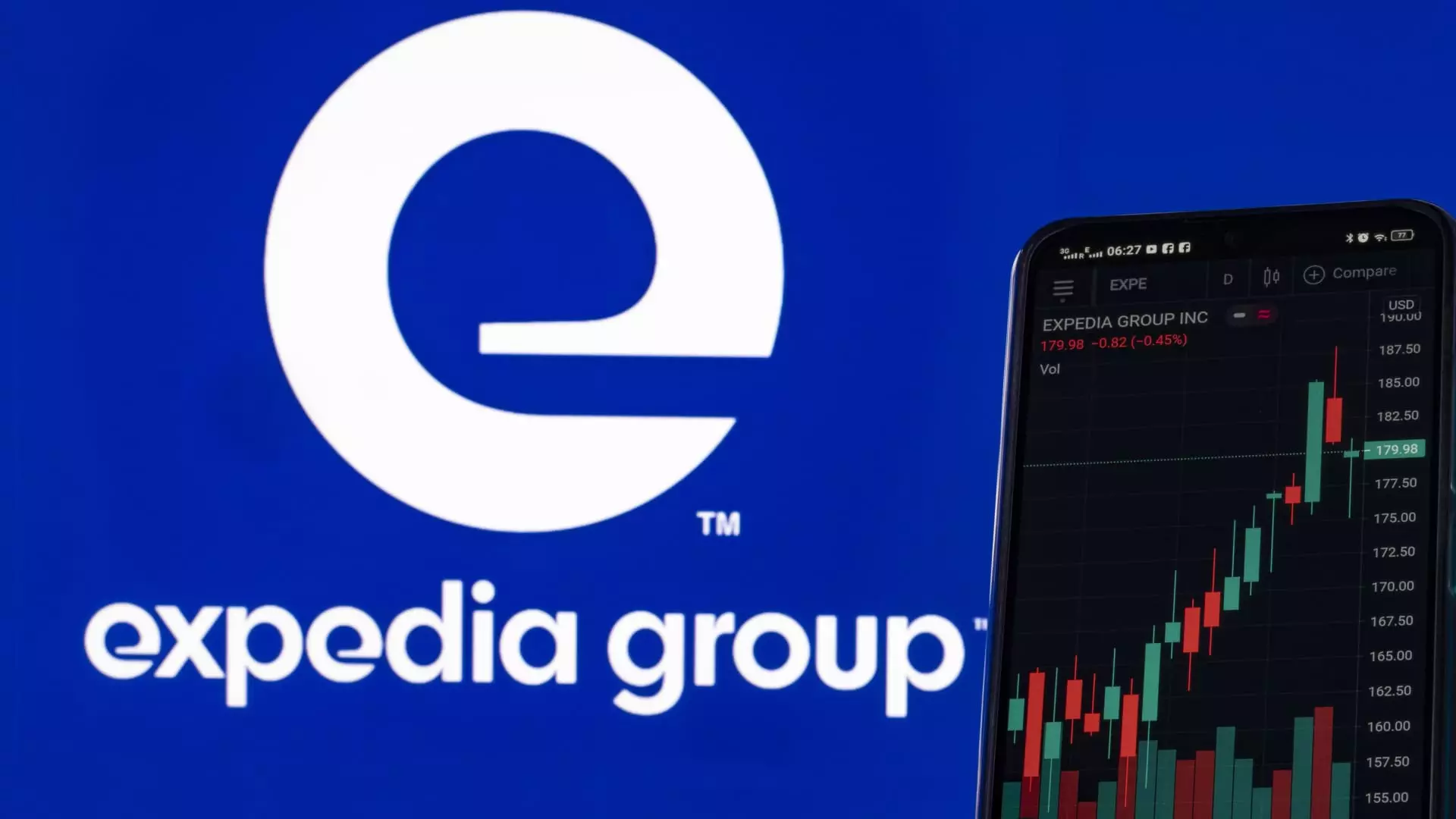In a market saturated with hype around travel stocks like Expedia, it’s tempting to believe that the sector has defied economic gravity and is destined for perpetual growth. The recent bullish momentum pushes investors to overlook deeper vulnerabilities. While it’s undeniable that travel demand remains robust—driven by multigenerational family trips, remote work flexibility, and post-pandemic bucket-list pursuits—this resilience may be more fragile than it appears. Market optimism often clouds judgment, especially when the narrative centers on secular growth. But history teaches us that sectors perceived as resilient can experience sharp downturns when underlying economic shifts occur or when excesses are revealed.
Expedia, like many other travel companies, has reported impressive short-term figures, including rising booking volumes and increased international revenue. Yet, these numbers may mask structural risks that could precipitate significant declines. The fact that Expedia’s shares have rallied on the back of solid quarterly results does not guarantee long-term stability, especially if overvaluation or external shocks materialize. Investors displaying hubris—assuming the good times will continue indefinitely—are setting themselves up for potential heartbreak.
A Closer Look at the Fundamentals: Are They Truly Robust?
Expedia’s latest earnings reveal strong performance metrics: a 7% year-over-year increase in room nights booked and sustained growth in B2B segments. The company’s aggressive share repurchase strategy and raised guidance further paint a picture of confidence. However, focusing only on these high-level achievements can detract from the vulnerabilities lurking beneath.
One critical concern is the sustainability of the travel surge. The current demand appears fueled by pent-up travel demand and a “revenge travel” mentality—phenomena that tend to taper off as new travel habits settle and economic uncertainties deepen. If the macroeconomic picture worsens, consumer spending on leisure travel could take a hit, reversing recent gains. The elevated international growth numbers, while promising, are also more susceptible to geopolitical tensions, regulatory changes, and currency fluctuations that could dampen future revenues.
Furthermore, Expedia’s reliance on a complex ecosystem of B2B and advertising revenues introduces risks. While diversification can be a strength, it often masks underlying dependence on core booking performance. If macroeconomic tailwinds fade or if competitors gain ground—particularly from emerging aggressive entrants—the overall profitability could suffer. The current optimism may blind investors to these medium-to-long-term threats.
The Temptation of Short-Term Gains Versus Long-Term Risks
The recent sharp rally in Expedia’s stock after earnings exemplifies investor exuberance. Yet, exuberance can be dangerous, especially without solid risk management. The stock’s overbought conditions and the presence of a “black candle”—a heavy downward trading day early this year—highlight how fragile momentum can be. Technical levels like the $205 resistance and the rising 50-day moving average serve as crucial support zones; a breach could open the door for substantial declines.
From a risk perspective, it’s prudent to acknowledge that the travel industry often exhibits cyclical behavior, highly sensitive to shifts in economic health and consumer confidence. Over-inflated expectations—fueled by recent growth—may not withstand an economic slowdown. If consumer discretionary spending contracts, Expedia’s earnings could plummet, and the stock could suffer a rapid correction.
Additionally, the market’s complacency regarding valuation metrics warrants concern. A stock that has already doubled or tripled in value based on short-term optimism becomes increasingly vulnerable if underlying fundamentals weaken. Investors with a center-right liberal perspective—focused on balancing growth with fiscal prudence—should approach such speculative surges with skepticism. While the industry’s secular growth story is appealing, it’s essential to remember that no sector is immune to downturns fueled by macroeconomic deteriorations, regulatory crackdowns, or competitive disruptions.
In sum, while Expedia’s recent performance has been impressive, it’s crucial for investors to maintain a critical eye. The shiny narrative of resilience and secular growth must be weighed against persistent structural vulnerabilities. The current rally might be a mirage—an overreaction to short-term data rather than a reflection of sustainable, long-term fundamentals.
For those inclined to invest, patience remains a virtue. Waiting for a clear technical pullback or a more discounted valuation, rather than chasing after the latest high, aligns better with a center-right liberal approach. In the end, the potential for a sharp correction looms—especially if economic conditions worsen or if investors realize that exponential growth in travel is, after all, dependent on a fragile macroeconomic backdrop. The sector’s resilience could quickly give way to vulnerability, and the person who bets blindly on continued upward momentum risks facing substantial losses.


Leave a Reply